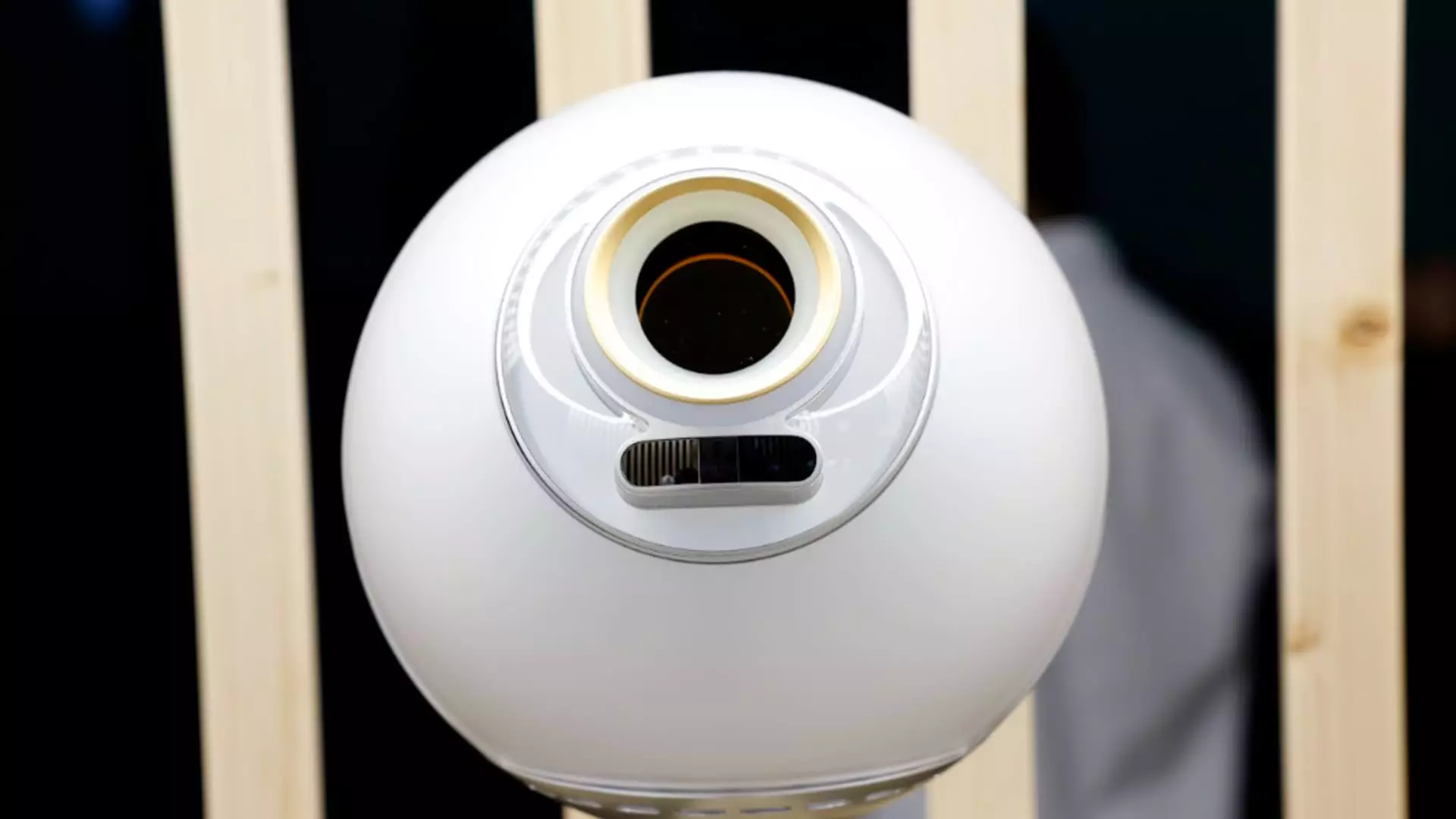In an era marked by rapid technological advancements and escalating concerns over privacy and fraudulent activities, a groundbreaking initiative is emerging. World, co-founded by OpenAI CEO Sam Altman, is positioning itself at the forefront of biometric identity verification technology. This ambitious project aims to redefine the landscape of personal identification by employing an innovative device called the Orb, which utilizes eye-scanning technology to ensure that users are authentically human and not AI impersonators. With its debut set for London, the initiative is primed to expand to major UK cities such as Manchester, Birmingham, and Glasgow in the coming months.
The Orb: A Window to Authenticity
At the heart of the World project lies the Orb device, which scans individuals’ eyes to create unique biometric identifiers. This process transcends traditional methods of verifying identity, including standard passwords and even facial recognition techniques, all of which have proved vulnerable to sophisticated AI manipulation. By converting eye scans into a unique iris code, World aims to establish an impenetrable barrier against the proliferation of deep fakes and other AI-driven fraud. Users will not only receive an iris code but also the cryptocurrency WLD as a gesture of participation in this new ecosystem, and they will operate under an anonymous identifier called World ID, enabling secure sign-ins to various platforms including Minecraft and Reddit.
Market Demand and Challenges
The demand for a robust biometric identity solution like World is undeniable. With the increasing use of AI technologies that can easily deceive conventional verification methods, the market is rife with opportunities for effective identity solutions. Organizations ranging from enterprises to government entities are beginning to see the value in implementing such a system. Adrian Ludwig, a principal architect at Tools for Humanity—a core contributor to World—articulates that the urgent need for enhanced identity verification stems from a growing recognition of the potential threats posed by AI. As these technologies evolve, so too must our methodologies for ensuring trust and authenticity in digital interactions.
Critically, while the service operates on the premise of heightened security, concerns regarding privacy and data security loom large. The project’s promise to encrypt biometric data and delete original scans seeks to address these anxieties. However, questions remain about the feasibility of maintaining user privacy in an era characterized by massive data collection through platforms like Facebook and TikTok. With a current user base of 13 million, World must prove that it can scale its operations to accommodate billions without succumbing to privacy pitfalls inherent in centralized data systems.
A Broader Impact on Digital Identity
As World transitions from pilot projects to full-scale operations, it must navigate various regulatory landscapes. Governments worldwide are increasingly recognizing the need to transition from physical identity cards to digital solutions, yet the road is fraught with challenges. Take India’s Aadhaar initiative, for instance; while lauded for its innovative approach, it has faced significant criticism regarding security and social equity. Ludwig emphasizes that governments are exploring how to leverage systems like World to enhance their identity infrastructure and curb fraud.
However, the intricacies of regulatory compliance must not be underestimated. Without proper safeguards and consultation with organizations like the Information Commissioner’s Office in the UK, World risks encountering significant operational hurdles. Ludwig assures that their team is actively engaging with regulators to address critical questions posed about the system’s viability and the protection of user privacy.
The Future of Biometric Authentication
Propelled by an urgent need for strong identity verification systems, World is not merely a technological innovation; it is a critical response to the wave of anonymity that the internet and AI technologies can foster. As we advance deeper into a digital-first world, the importance of defining and protecting our individual identities has never been more crucial. World’s vision, coupled with the capabilities of the Orb device, offers the tantalizing potential to redefine how we authenticate ourselves in the digital realm. The ability to effortlessly verify our humanity could not only enhance security but also pave the way for more meaningful engagements across platforms.
The journey from concept to execution presents a plethora of challenges, and the forthcoming months will be vital as World strives to successfully integrate its technology into everyday life. The real test will be whether it can balance the dual demands of security and privacy while scaling its innovative solution to meet global needs. With ongoing discussions in the regulatory space and a clear understanding of the role of identity in our digital interactions, World stands at the intersection of opportunity and responsibility, inviting us to rethink what it means to be authentically human in a world increasingly populated by AI.

